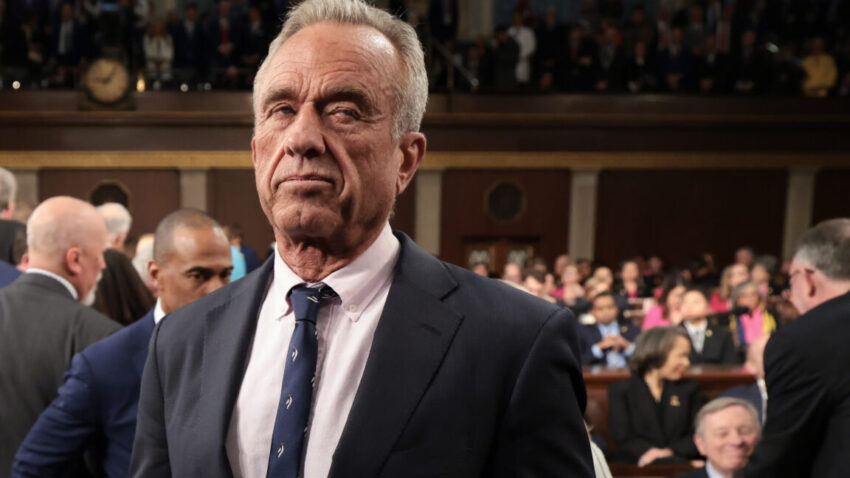
rfk jr s loathesome edits cdc website In a controversial move, the Centers for Disease Control and Prevention (CDC) has altered its webpage on autism and vaccines, now promoting a false narrative linking the two, a change that aligns with the views of Robert F. Kennedy Jr., the newly appointed top health official known for his anti-vaccine stance.
rfk jr s loathesome edits cdc website
Background on Vaccine-Autism Misinformation
The belief that vaccines cause autism has been widely discredited by the scientific community. This misinformation originated from a 1998 study published in The Lancet by Andrew Wakefield, which falsely suggested a connection between the MMR (measles, mumps, and rubella) vaccine and autism. Subsequent investigations revealed serious ethical violations in Wakefield’s research, leading to the retraction of the study and the loss of his medical license. Numerous large-scale studies have since confirmed that there is no causal link between vaccines and autism.
Despite overwhelming evidence refuting this claim, the anti-vaccine movement has gained traction over the years, fueled by social media, celebrity endorsements, and a general distrust of pharmaceutical companies and government health agencies. The CDC’s previous webpage on autism and vaccines served as a crucial resource for parents and caregivers, providing clear, evidence-based information to counteract these harmful myths.
Changes to the CDC Website
On Wednesday, the CDC made a significant change to its “Autism and Vaccines” webpage. The previous content, which prominently featured the statement, “Studies have shown that there is no link between receiving vaccines and developing autism spectrum disorder (ASD),” has been replaced with language that aligns with anti-vaccine rhetoric. This shift reflects a broader trend of misinformation permeating public health communications, particularly under the influence of individuals like Kennedy, who have long advocated against vaccination.
Implications of the Change
The implications of this change are profound. By promoting a false narrative, the CDC risks further eroding public trust in vaccines, which are critical for preventing outbreaks of vaccine-preventable diseases. Vaccination rates in the United States have already been declining, leading to increased cases of diseases like measles and whooping cough. The CDC’s decision to alter its messaging could exacerbate this trend, particularly among vulnerable populations such as children and those with compromised immune systems.
Public health experts have expressed concern that this shift will contribute to a growing climate of fear and confusion surrounding vaccines. Parents, already inundated with conflicting information, may feel more uncertain about vaccinating their children. This uncertainty can lead to lower vaccination rates, which in turn can result in outbreaks of diseases that were previously under control.
Stakeholder Reactions
The reaction to the CDC’s decision has been swift and varied. Public health officials, pediatricians, and vaccine advocates have condemned the change, emphasizing the importance of maintaining clear, evidence-based communication regarding vaccines. Dr. Anthony Fauci, former director of the National Institute of Allergy and Infectious Diseases, stated, “This is a dangerous precedent that could have dire consequences for public health.”
Parents and caregivers have also voiced their concerns. Many expressed feelings of betrayal, as they relied on the CDC for accurate information regarding vaccines. “I trusted the CDC to provide me with the facts,” said one mother of two. “Now, I feel like I can’t trust them anymore.” This sentiment reflects a broader crisis of confidence in public health institutions, which could have long-lasting effects on vaccination efforts.
Public Health Consequences
The potential consequences of declining vaccination rates are alarming. Diseases that had been largely eradicated in the United States, such as measles, could see a resurgence. The World Health Organization (WHO) has already reported an increase in measles cases globally, attributing it in part to declining vaccination rates. In 2019, the U.S. experienced its highest number of measles cases since 1992, with outbreaks linked to unvaccinated populations.
Furthermore, vaccine-preventable diseases can have severe consequences, particularly for children. Hospitalizations, long-term health complications, and even deaths can result from infections that vaccines could have prevented. The CDC’s new messaging could inadvertently contribute to a public health crisis, as more individuals choose to forgo vaccinations based on misinformation.
The Role of Social Media and Misinformation
The rise of social media has played a significant role in the spread of vaccine misinformation. Platforms like Facebook, Twitter, and Instagram have become breeding grounds for anti-vaccine rhetoric, allowing individuals to share their beliefs without scientific backing. This environment has made it increasingly difficult for public health officials to combat misinformation effectively.
In light of the CDC’s recent changes, social media may amplify the false narrative linking vaccines to autism. Anti-vaccine activists are likely to seize this opportunity to further their agenda, using the CDC’s altered messaging as a validation of their beliefs. This could create a feedback loop, where misinformation spreads more rapidly, leading to even greater public confusion.
Importance of Accurate Public Health Messaging
Accurate public health messaging is crucial in combating misinformation and fostering trust in vaccines. The CDC has a responsibility to provide clear, evidence-based information that empowers individuals to make informed decisions about their health. The recent changes to the autism and vaccines webpage undermine this mission, potentially leading to dire public health consequences.
Experts argue that restoring the previous content is essential for rebuilding trust and ensuring that parents have access to accurate information. “We need to reaffirm our commitment to science and evidence-based practices,” said Dr. Linda B. Cummings, a pediatrician and vaccine advocate. “Parents deserve to know the truth about vaccines and autism.”
Future Considerations
As the landscape of public health communication continues to evolve, it is critical for organizations like the CDC to adapt their strategies in combating misinformation. This includes not only restoring accurate information but also engaging with communities to address their concerns and fears surrounding vaccines. Building trust requires transparency, empathy, and a commitment to evidence-based practices.
Furthermore, collaboration with social media platforms is essential in curbing the spread of misinformation. Public health officials must work alongside tech companies to develop strategies that promote accurate information while limiting the reach of false narratives. This is particularly important in light of the CDC’s recent changes, which may embolden anti-vaccine activists.
Conclusion
The alteration of the CDC’s autism and vaccines webpage represents a troubling shift in public health communication, aligning with the anti-vaccine rhetoric of Robert F. Kennedy Jr. This change not only undermines the scientific consensus that vaccines do not cause autism but also poses significant risks to public health by potentially decreasing vaccination rates. As the nation grapples with the implications of this decision, it is imperative that public health officials reaffirm their commitment to evidence-based practices and work to restore trust in vaccines.
Source: Original report
Was this helpful?
Last Modified: November 20, 2025 at 11:44 pm
1 views















